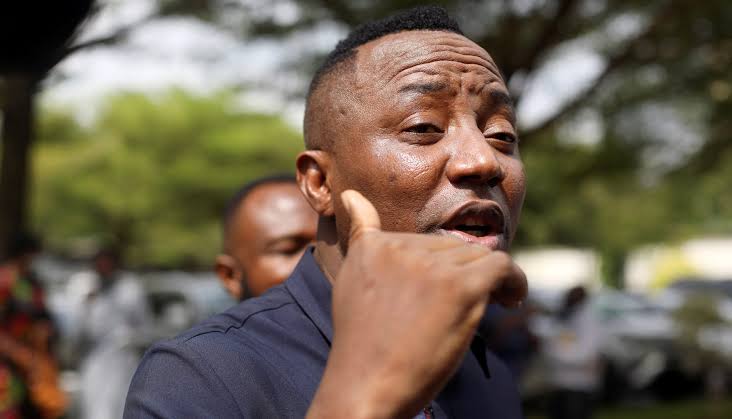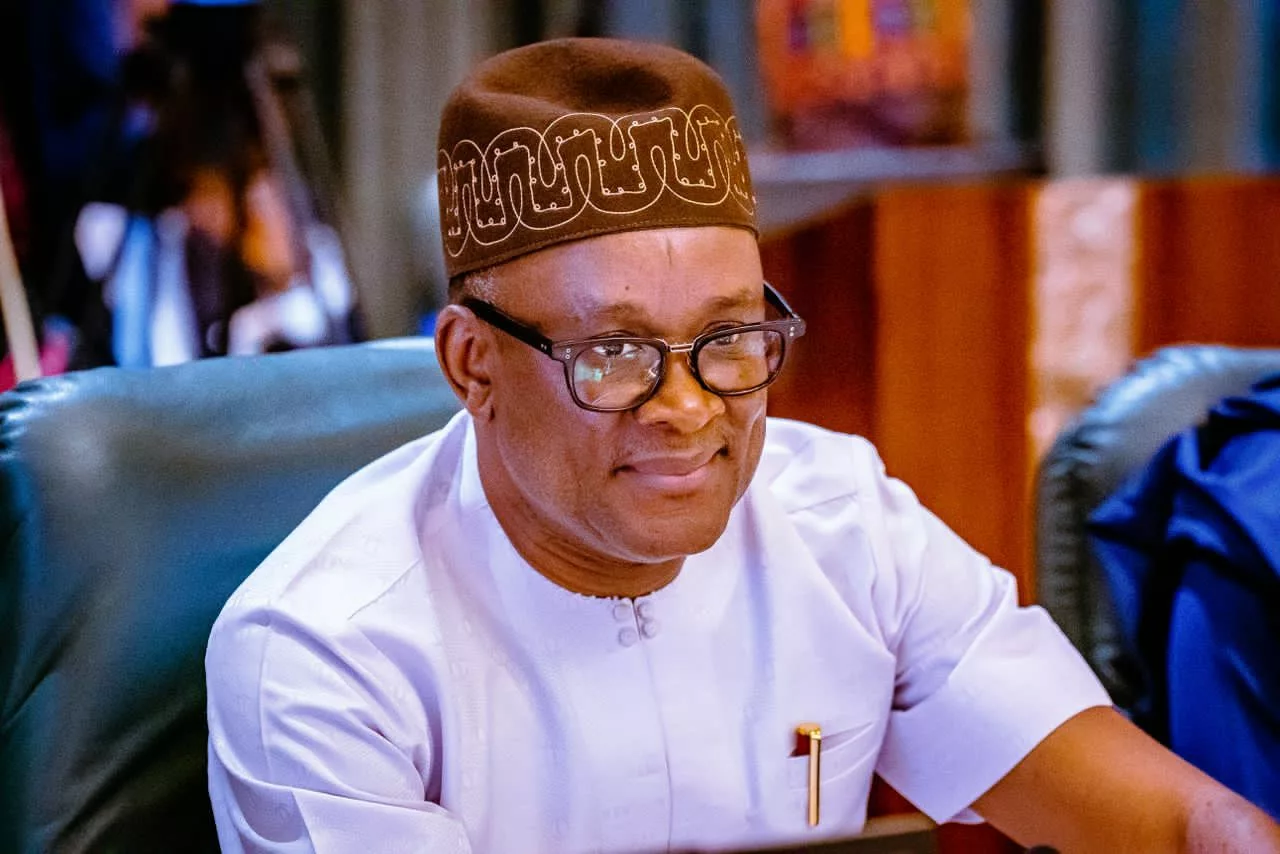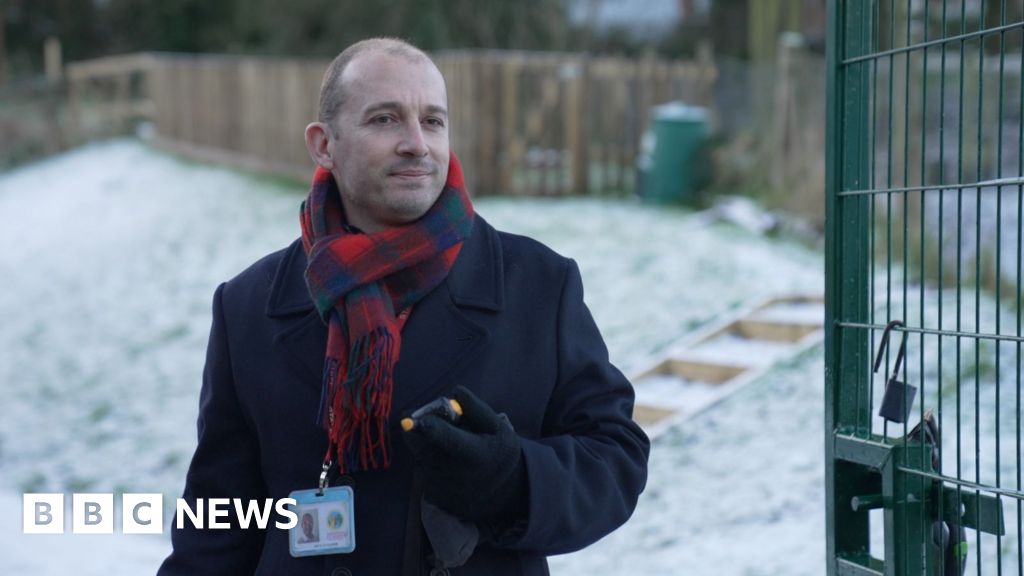Chairman of the Senior Staff Association of Nigerian Universities, University of Ilorin branch, Olusola Falowo, discusses with DANIEL AYANTOYE the dispute between the union and the Federal Government over the four months withheld salaries of members
Your union had protested on Tuesday over the delay by the Federal Government in the payment of four months’ salary arrears. What will be the next line of action if the government fails to pay after the protests?
If after the protest, the government still did not pay us, we will go for a grand protest at Abuja on the 18th (of July). So, after that grand protest, if they still don’t pay us, that is when we will now embark on the mother of all strikes. It is going to be a total and indefinite strike. There won’t be any concessions. So, we are appealing to the government that they should not confirm the common saying that the only language that our government understands is the language of strike.
They (the government) should not force us to go on strike because we don’t love to go on strike. The most painful part of it is that just last month, our counterparts in the academic union, ASUU, were paid their withheld salary and they left non-teaching unions. We remain hopeful that the government will ultimately meet our demands.
Give us a background to the negotiation between the union and the Federal Government that has resulted in your latest action.
Our primary demand is the payment of our four months’ withheld salaries. In 2022, all university unions went on strike, calling for a review of the 2009 agreement and the release of the N50bn promised by the government. We, SSANU and NASU under JAC, suspended our strike based on an agreement with the then minister of Education, Adama Adamu, and Dr Chris Ngige, who was the minister of Labour at the time.
One key clause in that agreement was the non-victimisation clause, which stated that no one would be penalised for participating in the strike. However, the government has violated this clause by withholding our salaries. We have been making efforts to avoid further strikes because SSANU and NASU prefer to be at our jobs.
Striking is not something we enjoy; we only resort to it when we feel cornered, and the situation becomes desperate. Since 2023, we have tried to avoid striking by writing to all relevant authorities, including the Minister of Education, the Minister of Labour, the Accountant General, the Ministry of Budget, and other stakeholders in the education sector.
We have expressed our unwillingness to strike but emphasised our need for action. Despite giving the government a two-week notice, we refrained from striking, as our leaders were called to a meeting in Abuja. However, the meeting between the national leadership of SSANU and NASU with the Federal Government yielded no concrete results, showing no commitment from the government to pay us. To avoid a strike, SSANU and NASU’s national leadership now called for a national protest, which took place on Tuesday.
But why do you believe the Federal Government consistently overlooks non-teaching staff and focuses primarily on ASUU?
The government is taking non-teaching staff for granted. What they fail to realise is that no university in the world can function without its non-teaching staff. From the moment you enter a university in Nigeria, you are greeted by security personnel who are non-teaching staff. At the reception, the people who welcome you are non-teaching staff. The admissions office is staffed by non-teaching personnel. The clinic, the academic office, and the registry; all these are run by non-teaching staff.
The individuals, who clean the environment, weed the grasses, and maintain all electrical and mechanical appliances are non-teaching staff. If the government prioritises only those who teach in classrooms and neglects the crucial roles handled by non-teaching staff, it is unfair. It seems the government does not fully understand how university systems operate; otherwise, they wouldn’t pay ASUU and ignore the non-teaching staff.
What is your opinion on how the Federal Government manages the education sector?
I fear that our leaders generally want to make education unaffordable for the common man. The primary and secondary school systems have already been destroyed. Most polytechnics and colleges of education are struggling to survive. University education is still somewhat strong, but it’s on the verge of being destroyed.
Many leaders have their private universities. So, I hope it’s not a conspiracy to destroy public universities to benefit their private ones. The government needs to address this issue because these are the universities that educate most of them, often for free, including meals. They have now refused to take care of the workers and ensure Nigerian children receive quality education at the university level.
Have we not tried enough since 2022, clamouring for the payment of our withheld salaries? We had an agreement with the government before we suspended the 2022 strike. Among all the unions that went on strike, only SSANU and NASU had a written agreement with the government, which included four months of salary arrears. Our arrears are four months, while ASUU’s are six months.
We resumed work based on their promise to pay us, but they never did. We fulfilled our part of the bargain, but they didn’t fulfill theirs. How can we trust them next time? I urge Nigerian citizens to appeal to the government on our behalf. We love our work and don’t want to go on strike. The government should pay our withheld salaries and fulfill all the items in our agreement, including the 2009 agreement.
Your association’s protest came when there was a strong push for an increase in a new national minimum wage. Are you concerned that this may hinder the progress of the minimum wage demand?
The issue of the minimum wage has been unresolved for a long time, often with claims that there are no resources. A government that wants to convince citizens of a lack of resources will not distribute SUVs to legislators. If resources are truly scarce, why prioritise buying SUVs and even discuss purchasing a presidential jet? Consider the extravagant spending on the Vice President’s house and the large convoys during their outings, where each participant receives allowances.
The Nigerian government’s actions don’t align with their claims of financial constraints. It is inconceivable that someone earning N24m a month asks someone earning N30,000 to make sacrifices. Why not reduce their earnings from N24m to N10m? The government should not push the masses to the limit. They should live according to the country’s purported financial situation.
Today, a bag of rice costs N80,000, and many families struggle to afford it on their current salaries. How do people in the government sleep at night with the country in such a state? Medical services are now inaccessible, and drugs have become extremely expensive. Civil servants can no longer afford medication, yet some states still refuse to pay the N30,000 minimum wage. I urge the government to implement efficient and extensive price controls if they cannot meet Labour’s demand for a higher minimum wage.
With price controls, the proposed salary will be more reasonable. In the market, three pieces of tomatoes now cost N1,500. How can we survive like this? The most basic human need is food. How can the government be complacent when some Nigerians lack food and access to medical care? This situation is unacceptable. I don’t believe the claims of insufficient resources to pay the minimum wage because the government’s lifestyle contradicts it.
Recently, the Ekiti State governor stated that they cannot pay the minimum wage without the Federal Government increasing allocations. What are your thoughts on this?
The governors claiming they cannot pay the minimum wage without an increase in allocation don’t know what they are saying. Following the removal of the subsidy, allocations have significantly increased. President (Bola) Tinubu specified that these funds are intended to support the citizens in their states.
Look at what Governor (Babagana) Zulum is achieving in Borno State; I have seen it firsthand, and his citizens are pleased with his performance. Apart from him, I don’t see any other governor performing at his level. If Governor Zulum can effectively manage his state, the governor of Ekiti State should be able to do the same. It’s incorrect and unwarranted to say that allocations must increase before they can pay the minimum wage.
Governors have also stated that the responsibility for negotiating the minimum wage should lie with the states rather than the Federal Government. What is your opinion on this matter?
The minimum wage is not on the concurrent list; it is on the exclusive list. Before they can change that, they must amend the constitution. It is the responsibility of the Federal Government to announce and ensure the payment of the minimum wage. Governors do not have the right to withhold the minimum wage, especially when they have the means to pay it.
It seems they prefer to maintain their extravagant lifestyles, where a convoy of 20 cars follows them whenever they go out. Government positions require accountability, and if we fail to be accountable to the people here, we will ultimately answer to God. If they continue to live extravagantly and believe they are beyond reproach, they will answer to God.
In terms of governance, where do you perceive the government is faltering in its administration of the country?
In Nigeria, we urgently need a leader who understands how to address the people’s challenges. We all know the steps required to elevate Nigeria to greatness, but unfortunately, the government seems reluctant to take action. A nation that fails to produce goods cannot prosper.
Currently, herdsmen have continued to displace farmers from their lands. Recently, news reports highlighted clashes between local security forces and herdsmen stemming from their cattle grazing on farmlands. This situation persists nationwide. The government must intervene decisively to control these herdsmen and prevent them from disrupting food production by our farmers. Addressing this insecurity should be the top priority. We cannot be eating only meat.
A former military head of state once said that any insurgency lasting more than 24 hours implies government involvement. We all heard him say it. It’s high time we ended the insecurity plaguing our land. Additionally, the Ajaokuta and Osogbo steel mills, among others, used to function efficiently. Why can’t they be revived? The government should focus on these industries. Our refineries have worked before; why aren’t they operational now?
If we get these refineries working, it will benefit us greatly. Recently, (Aliko) Dangote mentioned that Nigerian crude oil is more expensive than imported crude. Does that make any sense? If local crude is more costly for Dangote’s refinery, leading to higher petrol prices for Nigerians, where is the logic? And we claim to have a government. For Nigeria to thrive, we must address these issues. We know how many graduates we produce every year, all hoping for jobs. Until these problems are resolved, Nigeria cannot truly progress.
Some people have also called for a new curriculum in the nation’s universities. What are your thoughts on this?
It is high time the curriculum of our universities is revamped to produce self-reliant and productive graduates. How are the Japanese and Chinese doing it? What is in their curriculum that equips their graduates with such skills? Can’t we study their model and adapt it to Nigeria? Why are we still using a curriculum from the 1970s to teach students in 2024? The curriculum I used in university is the same one being used today. We are doing the same thing the same way and expecting different results. My advice to the government is to study the educational systems of developed countries and apply those lessons here.
The President has directed the payment of the withheld salaries. What is your reaction to this development?
It’s a good development, and we commend the President for it, but it has not yet been actualised. We want the President to ensure this directive is implemented because, if you recall, in December 2023, the Federal Executive Council directed that university staff members should be excluded from the IPPIS. However, that directive has not been carried out.
We urge the President to be mindful of potential saboteurs within his government. The instruction to pay our four months of withheld salaries should be implemented promptly because, in the past, there have been instances where the President’s orders were not followed by those responsible for carrying them out.
Remember, we gave the government a 10-day ultimatum, and we have submitted the letter to the Minister of Education and the Minister of Labour and Employment. We are grateful to the President and acknowledge that he is a democratic leader, but we remain concerned about saboteurs within his government.

 4 months ago
91
4 months ago
91















 English (US) ·
English (US) ·